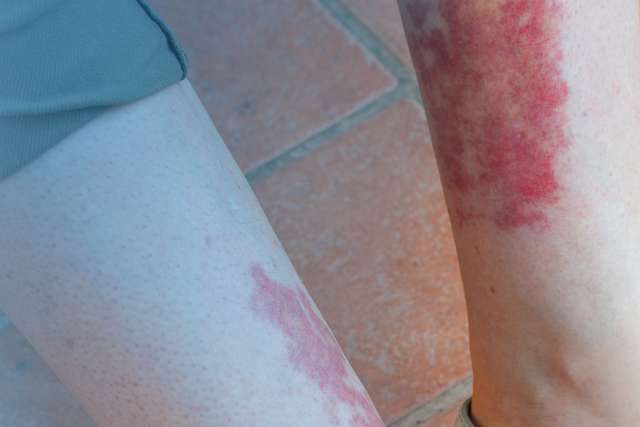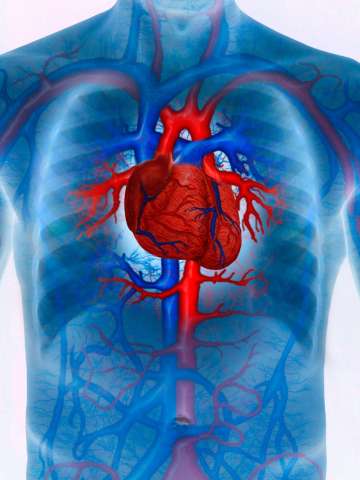Vasculitis Care
UCLA Health specialists offer comprehensive care for vasculitis, a rare autoimmune condition that causes inflammation. A robust team of experts provides state-of-the-art, personalized treatments.


Why choose UCLA Health for vasculitis care?
The UCLA Health Vasculitis Program is the first comprehensive, multispecialty program dedicated to vasculitis treatment in Southern California. Vasculitis is a rare group of conditions that causes inflammation throughout the body. Our team includes specialists from many fields of medicine who provide tailored care. We evaluate patients 18 and older and coordinate referrals to pediatric rheumatology for younger patients.
Highlights of our program include:
Coordinated care: You receive care from a full team of providers specializing in vasculitis. Our team includes rheumatologists, neurologists, dermatologists, head and neck physicians, ophthalmologists, pulmonologists, nephrologists and vascular surgeons. We create personalized care plans using state-of-the-art diagnostic tools and treatment options.
Research emphasis: As one of the nation’s most prestigious academic centers, we are at the forefront of leading-edge vasculitis research. Eligible patients have opportunities to participate in research and clinical trials. We develop new diagnostic tools, research treatments and track outcomes.
Physician leaders: Our physicians raise awareness about vasculitis by educating trainees, physicians and allied health professionals. We teach other specialists to recognize and evaluate patients with suspected vasculitis early so they can receive timely treatment.
What is vasculitis?
Vasculitis is a rare group of conditions in which the immune system attacks the blood vessels, causing inflammation. It can affect nearly any part of your body and causes a wide array of symptoms. Vasculitis symptoms may include:
- Fatigue
- Loss of appetite and weight loss
- Numbness or weakness
- Skin rashes
Depending on which part of your body is affected by inflammation, vasculitis complications can be serious and potentially life-threatening. For example, inflammation in the blood vessels in your brain may lead to a stroke. Vasculitis in your heart may cause a heart attack. It’s important to treat vasculitis early to lower your risk of these complications.
Most of the time, doctors don’t find a clear cause of vasculitis. These are rare conditions, and most forms of vasculitis affect only several people out of a million.
Types of vasculitis
Our specialists treat all forms of vasculitis, including:
Antineutrophil cytoplasmic autoantibody (ANCA) vasculitis: Specific antibodies called ANCAs cause inflammation by attaching to immune cells called neutrophils. Subtypes of ANCA vasculitis include:
Eosinophilic granulomatosis with polyangiitis (Churg-Strauss vasculitis): This vasculitis type almost always leads to asthma. People may also have sinus problems, allergies or rashes.
Granulomatosis with polyangiitis (GPA): Previously known as Wegener’s granulomatosis, this type typically affects the sinuses, lungs or kidneys. It may cause shortness of breath, congestion, chronic coughing or frequent nosebleeds. In GPA, inflammation causes the formation of granulomas, small clusters of immune cells.
Microscopic polyangiitis (MPA): MPA affects similar body systems and causes similar symptoms as GPA. It doesn’t cause granulomas and may progress more slowly than GPA.
Central nervous system vasculitis (CNS vasculitis): This type of vasculitis affects blood vessels in the brain and spine. Symptoms may include severe headaches, confusion, balance problems, vision loss or seizures. Without treatment, it can lead to serious complications, such as a stroke.
Cryoglobulinemic vasculitis: The body creates cryoglobulins, irregular immune system proteins. When the body gets cold, cryoglobulins can clump together and block blood vessels. This may cause muscle weakness, joint pain, rashes, red or purple skin spots (purpura) or ulcers.
Giant cell arteritis (temporal arteritis): Inflammation occurs in the lining of the arteries. It often affects the arteries in the head, especially in the temples. Symptoms may include headaches, jaw pain, scalp tenderness, vision changes or fatigue.
IgA vasculitis (Henoch-Schönlein purpura): An antibody called immunoglobulin A clusters in the small blood vessels. These clusters inflame the blood vessels and cause them to leak. This almost always leads to reddish-purple spots on the skin. It may also cause joint pain or gastrointestinal issues.
Leukocytoclastic vasculitis (LCV): This type occurs when immune cells called neutrophils break down and cause inflammation. It usually leads to symptoms that affect the skin, such as reddish-purple spots, an itchy or burning rash, open sores (ulcers) or fluid-filled bumps (pustules). LCV may also be called hypersensitivity vasculitis or hypersensitivity angiitis.
Polymyalgia rheumatica: This type of vasculitis affects the large muscle groups, especially in the hips and shoulders. It can lead to widespread muscle pain and stiffness and often occurs along with giant cell arteritis.
Polyarteritis nodosa (PAN): This disorder causes widespread inflammation and damage to small- and medium-sized arteries throughout the body. It can affect any organ system, including the kidneys, heart, intestines, muscles or nervous system. Symptoms may include high blood pressure, joint pain, muscle pain or abdominal pain. PAN may also lead to bulges in artery walls (aneurysms) or blood clots.
Takayasu arteritis: Inflammation occurs in the aorta, the large artery that carries blood from the heart to the rest of the body. It may cause arm weakness, muscle pain, a weak pulse, chest pain, high blood pressure and many other symptoms. Without treatment, complications such as a stroke, aneurysm or heart failure may develop.
Urticarial vasculitis: Usually, the first sign of urticarial vasculitis is bumps on the skin that look like hives (urticaria). The hives may itch or burn. Many people with urticarial vasculitis also have widespread symptoms such as joint pain, abdominal pain or swelling deep in the skin (angioedema).
Vasculitis treatments we offer
Treatment focuses on managing symptoms, lowering inflammation and reducing your risk of complications. Vasculitis treatment may include:
- Lifestyle changes, such as eating anti-inflammatory foods, exercising, and managing stress with healthy coping techniques
- Medications such as steroids to control inflammation
- Surgery, particularly if vasculitis has led to an aneurysm (bulge in the wall of a blood vessel)
- Emergency treatment for vasculitis complications, such as a heart attack or stroke
Our team
Our vasculitis team includes a wide range of experts. We evaluate, diagnose and treat all types of vasculitis. We also teach other health care providers to recognize the early signs of vasculitis so patients receive quick treatment. Thanks to our research efforts, eligible patients have access to new and promising treatment options through clinical trials.
Rheumatology
Dermatology
Head & Neck
Nephrology
Ophthalmology
Pulmonary Medicine
Vascular Surgery
Contact us
Call 310-582-6350 to request an appointment with a vasculitis specialist at UCLA Health.
Find your care
Our Vasculitis Program is the first of its kind in Southern California. Call 310-582-6350 to learn more about vasculitis treatment at UCLA Health.







